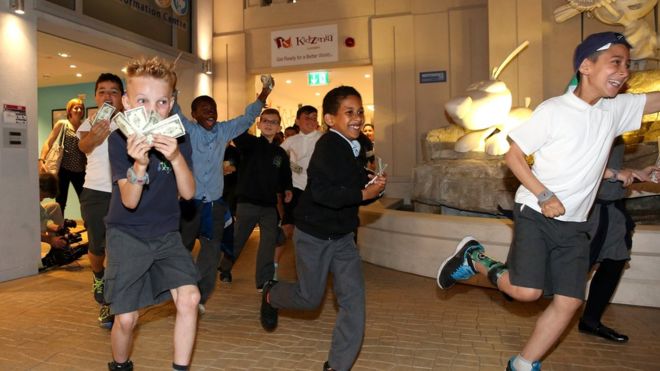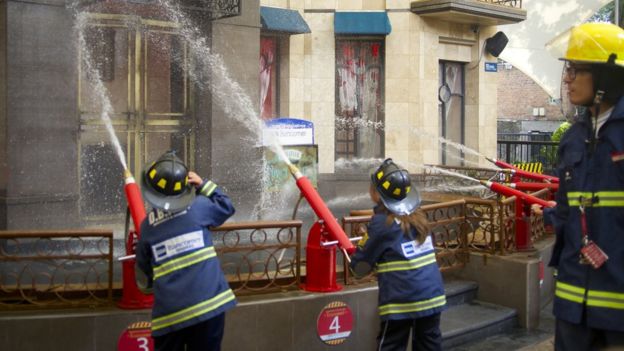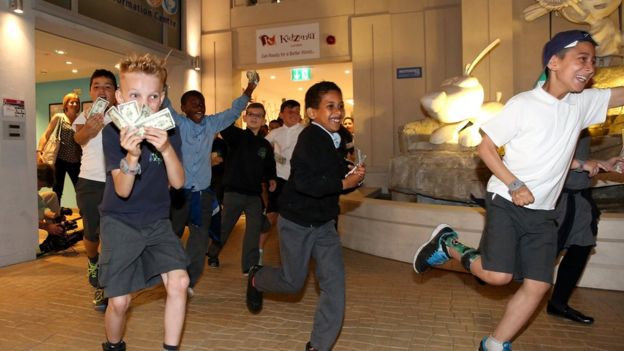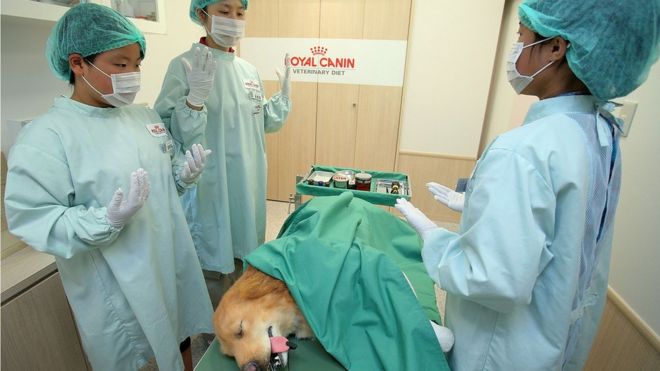
Xavier Lopez Ancona is not your conventional sort of entrepreneur: he’s also the president of several miniature “cities” all over the world. Cities with their own currency, and are populated and “run” by miniature people.
The cities are themselves oddities; theme parks that seem to have taken a leaf from reality TV. They allow young entrants the opportunity to role-play whatever job they desire – and with 100 to choose from, there’s lots of possibilities. They earn real currency, “Kidzos,” by doing “real” work. However, the currency’s purchasable goods is unfortunately limited to toys and activities, so one really isn’t going to be able to save up for a house with Kidzos.
Kids are growing up so fast… so why not just throw them into a pseudo-workforce so that they can learn how to make poor-quality fast food from the get-go?

“Get ready for a better world,” reads the theme park’s cheery slogan. Lopez hopes that by subjecting children to an early form of consumerism, and the daily grind, this would somehow lead to a more socially responsible and less corrupt world with opportunities for everyone. As long as everyone does as they’re told.
Kids do learn real skills through their “work,” though critics raise several important questions. Why is it necessary to explicitly name each of the “work places” after real world corporations? Why Domino’s pizza? Why American airlines? Why HSBC bank? Subjecting kids to such an early form of brand awareness can’t be healthy.
Parents are charged for the opportunity to have their kids “work.” However, corporate sponsors are apparently still necessary; they funded 55% of the original investment for the first Kidzania, and continue to contribute a whopping 35% – 45% of the revenue.

Lopez argues that he isn’t giving kids anything different from what the TV already provides. The companies also have industry-specific knowledge that they can provide to better simulate real world experiences. Though if realism is the intent, will the bank teach kids how to take all their friend’s Kidzos and invest it in subprime mortgage financial instruments? Also, none of the “jobs” at Kidzania teach or require specialized know-how that could justify corporate sponsorship.
“We’ve never crossed the line of what already exists in the daily lives of all children in their real cities. We only replicate what the child already has every day on the street, at home and everywhere,” he says.

Another question raised is the pursuit of status and consumerism that doubtlessly arises from this sort of endeavor; kids don’t actually get to experience the true extent of the drudgery that many of these jobs entail. However, while they get to invest their kidzos in additional qualifications to land a better job (“qualifications” in Kidzania simply increase one’s income, while ignoring the non-financial benefits of learning) or spend their kidzos on stuff, or even get a credit card.
Kids aren’t the only things growing up too fast; profits are up, and Kidzania is doing well in Tokyo, Malaysia, Thailand, Philippines, Lisbon and London.
“The initial idea was good, but there are millions of ideas that never amount to anything. I think what has been decisive is our people.”

“Our product is our people. Playing with the child and making him believe that he is a firefighter, doctor or reporter that is what I’m proudest of. By mixing entertainment and education, the concept, appeals to ambitious parents and schools as well as children. Educational entertainment or prolonged advertisement without parental supervision? It’s also novel and original. The fact there are no video games and violence makes it the first of its kind worldwide,”Ancona says.
While a better alternative to video games, learning how to make lots of money to buy stuff you don’t need is hardly something kids would not figure out on their own.
To be fair, being able to learn about the numerous jobs out there could theoretically allow kids to make better judgments about what they truly enjoy doing for the rest of their lives. It can also be argued that the kids are genuinely having fun – though this probably mostly comes from the toys and sweets they buy with kidzos (which was really paid for by their parents).
If only this was more realism and less brand advertising and brainwashing, then kids could get a realistic idea of the pros and cons of jobs, finding their true calling in life rather than being “nudged” towards certain corporations, all the while learning the bad habits us adults fall into. If the intent is to get kids to grow up too fast, better that they grow up too fast with real knowledge than with false beliefs.
Sources: BBC, The Telegraph, The Guardian, The Morning News, PSFK, Kidzania site
This article (Kidzania: He Made Millions off the Backs of Working Kids. Sort Of.) is a free and open source. You have permission to republish this article under a Creative Commons license with attribution to the author(CoNN) and AnonHQ.com.




